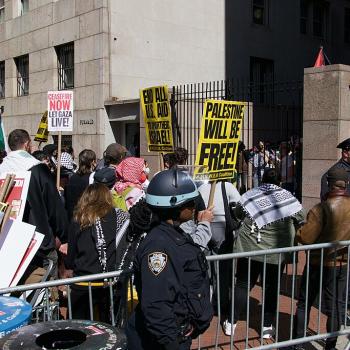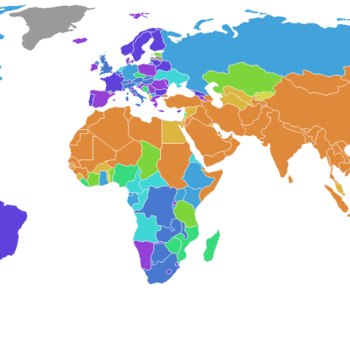Saudi Arabia is trying to hurt the American domestic oil industry by pumping so much oil that it drives down prices so as to make fracking unprofitable. And yet, that helps Americans with low gasoline prices. Saudi Arabia is the center of arch-conservative Sunni Islam, but has been a key American ally against ISIS. Saudi Arabian despotism creates Islamist rebels, but American foreign policy sees it as a force for stability in the Middle East. Saudi Arabia outlaws Christianity within its borders, but tends to be on the side of America’s government.
Now this important but contradictory nation is suddenly facing a crisis. Its king, 90-year-0ld King Abdullah, has died. Its odd laws of succession give the kingship to the various sons of the founding monarch, and, thanks to Islamic polygamy, there are 35 of them. So the throne goes to the various brothers of the previous king, rather than to the next generation. So the new king of Saudi Arabia is 79 years old and reportedly suffers from dementia.
From Saudi King Abdullah’s death sets up complex succession process – The Washington Post:
Saudi Arabia’s King Abdullah bin Adbul Aziz died Thursday evening, setting the stage for a transition of power at a critical moment as the key U.S. ally in the Middle East struggles with falling oil prices and rising Islamist violence.
The monarch, who was most likely 90, was succeeded by his brother, Crown Prince Salman, according to state television. That put the region’s most important Sunni power and America’s closest Arab ally in the hands of a 79-year old who is reportedly in poor health and suffering from dementia.
[Read obit: Abdullah, a wily king who embraced limited reform, dies]
Salman’s rise to the throne postpones the question of when the Saudi monarchy will turn to the next generation of princes to run their country of 28 million people at a crucial moment in a region mired in crisis.
While observers in Riyadh widely predicted a smooth transition to Salman, his poor health means his rule could be relatively short. Should there be a power struggle to succeed him, it could leave a policy vacuum in the Middle East at a critical time. Saudi Arabia is a key member of the U.S.-led coalition against the Islamic State and a major ally of the collapsed government in neighboring Yemen.
“Despite so many people saying it will be a smooth transition, there’s every reason to believe that Saudi Arabia is heading for rough times,” Simon Henderson, an expert on the Saudi succession at the Washington Institute for Near East Policy, said in an interview Thursday as rumors swirled around Riyadh that Abdullah had died.
[View: The Saudi royal family tree]
“Having a king with dementia is the last thing they need at this difficult time,” Henderson said. “Yemen is falling apart, ISIS is knocking at the door … this is an extraordinarily dangerous Middle East from a Saudi perspective.”
By Saudi tradition, the crown passes down among the sons of national founder King Adbulaziz bin Saud, who died in 1953. Salman would be the sixth son of Abdulaziz to be king, and few of his remaining brothers — out of at least 35 who were alive when Abdulaziz died — are believed to be healthy or qualified enough to assume the throne.
















